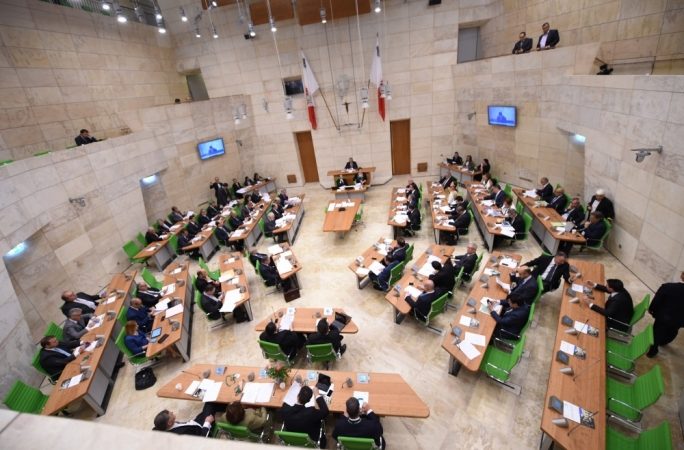Very broadly speaking, there are three categories of states. A state can be classified as either a democratic state, or a non-democratic state, or an “undemocratic democracy.”
The latter’s only claim to democracy is that the leader is “democratically” elected to power; Putin and Erdogan come to mind, elected dictators.
The deviant mutation of a democracy to an undemocratic democracy or elected dictatorship usually begins with the deliberate, systematic erosion of separation of powers.
In a parliamentary democracy, the state is made up of three organs; the Executive (the government), the Legislature (Parliament) and the Judiciary (the Courts). The free media – which lies outside of the organs of the state and provides scrutiny and oversight over the three pillars of the state – is considered as the fourth pillar.
The doctrine of separation of powers asserts that vesting concentration of power within one organ of the state must be avoided. As English historian and politician Lord Acton put it, “Power tends to corrupt and absolute power corrupts absolutely.”
Therefore, the three organs of the state (as well as the media), should be kept separate, and operate independently of each other, and provide for checks and balances on one another to avoid autocracy or inefficiencies. Without separation of powers, rule of law and democracy cannot subsist.
Nearly 250 years ago, James Madison summed all this up eloquently in The Federalist Papers (no. 47, 323—31): “The accumulation of all powers, legislative, executive, and judiciary, in the same hands, whether of one, a few, or many, and whether hereditary, self-appointed, or elective, may justly be pronounced the very definition of tyranny.”
Currently the House of Representatives is made up of 67 seats, 37 of which are taken by the Labour party. These include, the prime minister, 14 ministers and 10 parliamentary secretaries. In Malta, constitutionally, the prime minister, ministers and parliamentary secretaries must be members of parliament, meaning they have one foot in the executive and another in the legislature.
This fusion of the executive and legislative has been exacerbated by an inordinate amount of ministers and parliamentary secretaries, and if this was not enough, most Labour MPs and their extensions (activists, supporters, family, friends, and constituents) are appointed in additional key positions within the government as political appointees and persons of trust (currently numbering 700).
This deliberate fusion of the legislature and executive and systemic obfuscation of their parameters, leads to the total control of the government by the party in power, emasculates all checks and balances, and slowly but surely transforms a government into a totalitarian regime.
A few current examples of MPs who hold key appointments within the executive that come to mind include Manuel Mallia, (chairman of OHSA), Rosianne Cutajar (commissioner for the simplification and reduction of bureaucracy), Glenn Bedingfield (communications aide at the Office of the Prime Minister), Alex Muscat (the prime minister’s deputy chief of staff), Etienne Grech (chairman for the consultative council for the South of Malta), Anton Refalo (chairperson Heritage Malta), Stefan Zrinzo Azzopardi (chairman Grand Harbour Regeneration Corporation) and Robert Abela (legal consultant to the prime minister).
One would be hard-pressed to find a Labour MP not occupying an executive position, sitting on a government agency board or appointed as a consultant of sorts with a government department.
There are issues caused by the lack of separation of powers. For example, the police force lies within the executive (government). The police commissioner is appointed solely by the prime minister, and only the prime minister can remove her or him, as laid down by the Police Act Chap 164 of the Laws of Malta.
In a nutshell, the prime minister is the police commissioner’s boss. It would need a commissioner of high integrity and mettle to do the right thing even if it means investigating his boss or his boss’s protégés, but a commissioner not having this integrity and mettle is not worthy of being a police officer let alone a commissioner.
The Attorney General (AG) is also appointed by the prime minister. Using the same example, should the situation arise, he might have to prosecute his own boss. To compound matters, the AG has the constitutional role of advising the Government besides that of prosecution (a role that seems to have been arbitrarily given by the prime minister to Robert Abela in full disregard and disrespect of the Constitution), so he would also have to advise him at the same time.
In this kind of set-up, rule of law can never subsist, as we are witnessing. Instead we have rule by law and mob rule. Power currently lies exclusively in the hands of the political leaders of the party in government, who have complete control over parliament and over the state.
An incredibly unhealthy state of affairs for democracy in Malta. It’s time for the Maltese to claim their right back, their right to REAL democracy.













